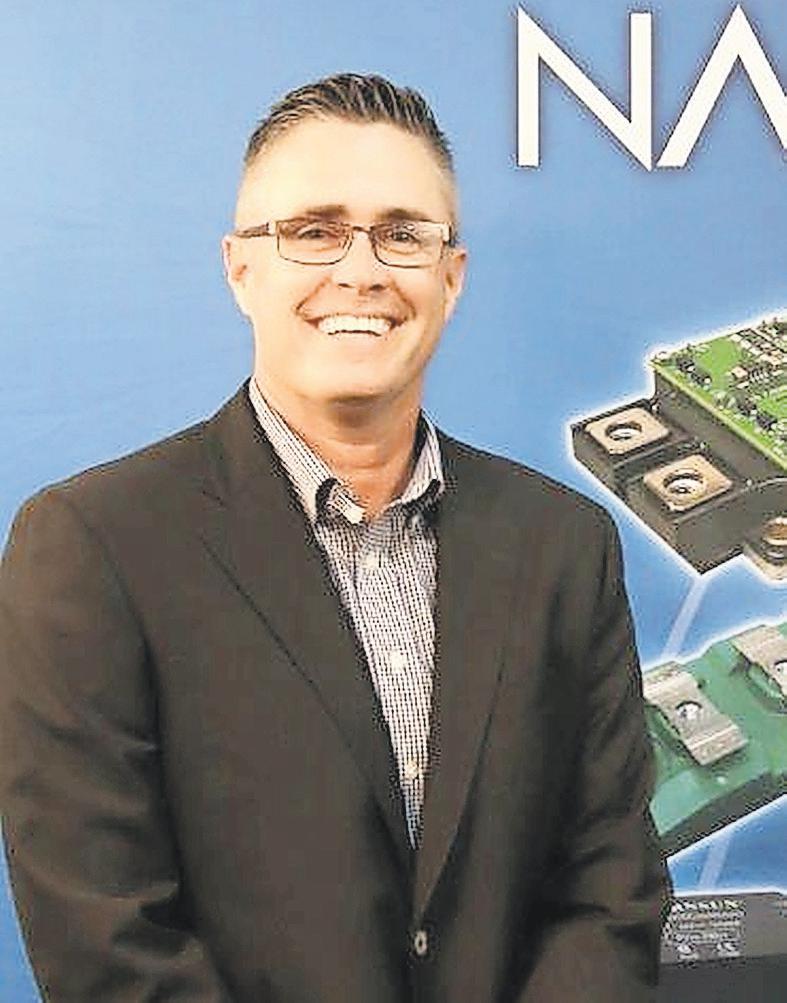
6 minute read
Three years after the pandemic’s onslaught, economic scars linger. THESE BUSINESSES ARE PUSHING AHEAD.

BY OLIVIA GEORGE Times Staff Writer
Advertisement
Across Tampa Bay and around the country, many business leaders find themselves in a phase of trial and error that comes with high stakes.


They face a competitive talent pool, lingering global supply chain complications, a pressure to control costs amid economic uncertainty and an ever-evolving technology landscape changing how employees communicate, collaborate and innovate.
Companies large and small are investing in their workforce and office culture, still learning to adapt to cater for shifting employee expectations in the wake of the post-pan- demic new normal.




Executives at a Pasco County engineering firm ponder how to recruit talent for in-person positions as virtual work cements its appeal. A general manager at a Gulf Coast beach resort struggles to find massage therapists, wondering how to rebuild the business of touch after a no-touch era. And across the bay, managers continue to adjust to the security ramifications of widely distributed workforces as new technologies usher in changes to the way workers are surveilled and monitored.
Just as last year, employers that made the Tampa Bay Times 2023 Top Workplaces rankings said there’s a retention push to keep workers thriving in their jobs.

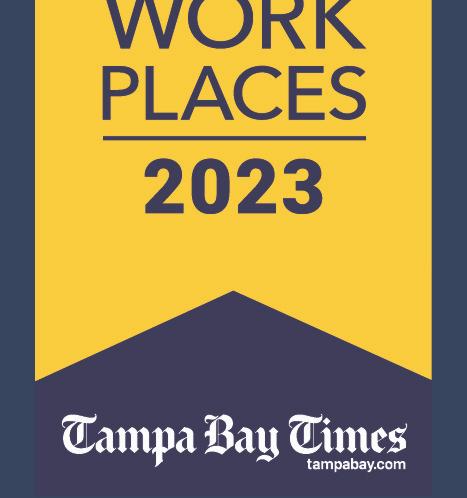


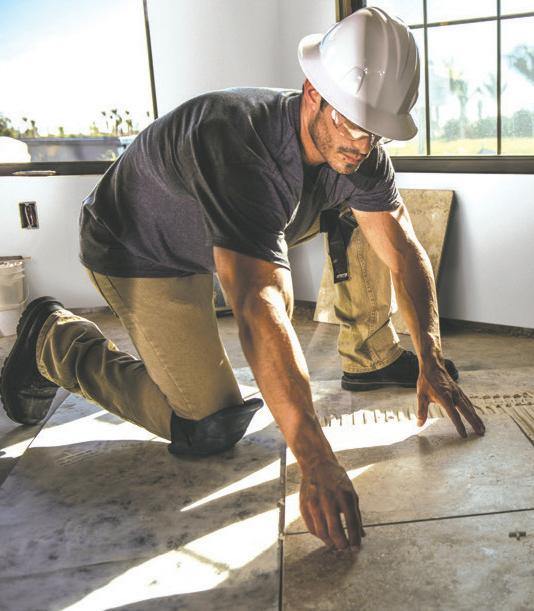


At Berkshire Hathaway HomeServices Florida Properties Group, one of five real estate firms voted Top Workplaces for the year despite dealing with rapidly shifting economic conditions, managers place an emphasis on professional development and financial management to help staff become bonafide entrepreneurs.
Agents, ranging in age from 19 years old to over 80, are treated not just as sales people, but as small business owners.
“We’ve worked for many, many years to create an environment that is welcoming and collaborating,” said co-owner Dewey Mitchell. “We’ve never settled for anything less.”
When the pandemic shuttered office doors and Zoom became the water cooler, some employees found an irrefutable loneliness in all the talking through screens. Working from home feels more like living in the office, they said, with work forever one click of a button away.
Others found freedom in the new age of flexibility, with hybrid work offering a sort of chooseyour-own adventure. Remote work options have also increased applications for federal jobs from women, minorities, disabled people, rural residents and military spouses, Kiran Ahuja, director of the Office of Personnel Management, testified to Congress earlier this month.
The pandemic pushed chief executive Thomas Feindt into a new kind of leadership mode, managing the workforce of Tampa-based Grow Financial Federal Credit Union from afar. He launched a weekly town hall videoconference series to communicate with teams and highlight what they were doing well under difficult circumstances.
Much of what he learned during the pandemic, he said, Grow has embraced permanently. The company now has employees working remotely in 15 states, and the virtual town hall series is ongoing.
At Clearwater-based cybersecurity firm KnowBe4, the virtual shift has opened the company to a bigger talent pool with the opportunity to hire highly skilled, remote employees, chief human resources officer Ani Banerjee told the Times.

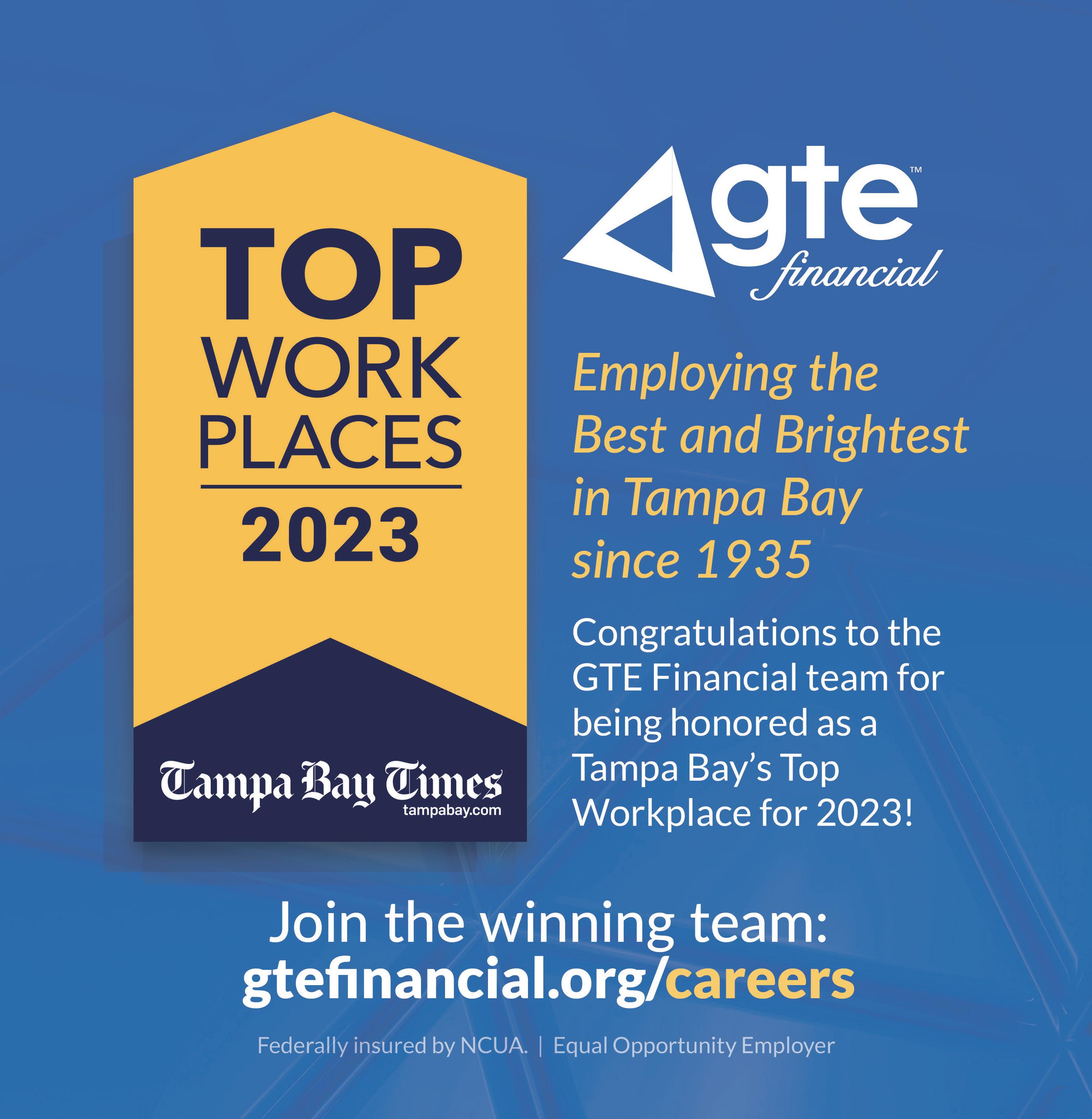

“While the majority of KnowBe4’s team still resides in the Tampa Bay area, when trying to hire for hard-to-fill or high-volume roles, it can be very beneficial to look for talent both within and outside of Tampa Bay,” he said.
Today, just 5% of employees work fully in the office.
Still, investors and developers are clamoring for the rare chance to grab commercial land in Tampa and St. Petersburg.
“Enough people are moving here and there are enough corporate relocations that there are tenants looking to take available space,” said Mack Feldman, a vice president with commercial real estate development firm Feldman
Equities which owns about 1.7 million square feet of office space in Tampa Bay.
Hedge fund Citadel recently became the latest big name in finance to cement a presence in the region, with a 3,200-squarefoot office in Water Street Tampa in the works.
Feldman described the market as a “tale of two office worlds.”
Centrally-located buildings with amenities like gyms and nearby restaurants remain in demand, while suburban, office park models are fading to extinction, he said.
Among the biggest challenges he said the industry is facing at the moment: “skyrocketing insurance and construction costs.”
After months of soaring salary offers, nationwide wage growth began to slow at the end of last year but Tampa Bay wages continued to rise, according to the latest Bureau of Labor Statistics data. Tech salaries in Tampa have risen at a higher percentage than in Silicon Valley, according to a recent report from career company Dice. But the cost of living is climbing, too.
Rents in Tampa Bay continue to rise above national average, according to a new report from the real estate company Redfin. And the region’s current inflation rate sits at 8.9%, about the national average of 6.4%.
Inflation is top of mind for employees, with 64% citing it as their top concern in a survey of 2 million hourly workers featured in a recent report from Homebase, a company that helps businesses with their staffing and operations. Rising prices could also improve retention: 56% of hourly workers do not plan to look for a job in the next 3-6 months, according to the report.
High housing costs, recession fears and a slowdown in household formation have made people less likely to move. New Port Richey-based manufacturing company FACTS Engineering has faced trouble filling some specialized, nonremote positions.
“The recruiters told me: ‘Once we let candidates know that these are not full-time remote positions, we lose over half of them,’” Walker said. “They don’t even want to know what the salary is.”
Layoffs across the industry and the rising cost of living, he added, have also made people hesitant to relocate. “There’s a lot of fear,” he said. “The economic conditions just have been too scary to make a big move.”
The proliferation of artificial intelligence also has some business leaders nervous. According to the World Economic Forum’s “The Future of Jobs Report 2020,” AI is expected to replace 85 million jobs worldwide by 2025. But for others, like Karl Bartling, director of paid advertising at St. Petersburg-based marketing company Hoth, the combination of AI and human intelligence stirs excitement. He said he’s not worried it’ll be a competitor since it’ll always need to be edited and checked by people. He sees it as a tool that can help him with writing and idea generation.
“And I personally think, right now with AI, you can still create better content yourself, right?” he said. “Because there’s no creative side to AI, just yet.”
Contact Olivia George at ogeorge@tampabay.com. Follow @OliviaCGeorge.

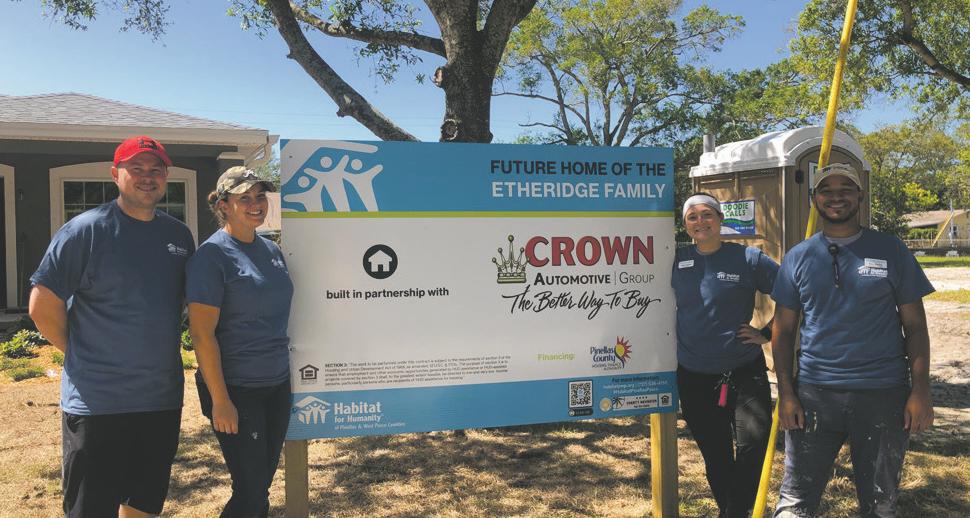



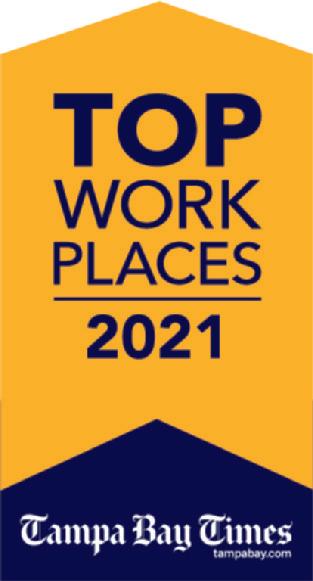
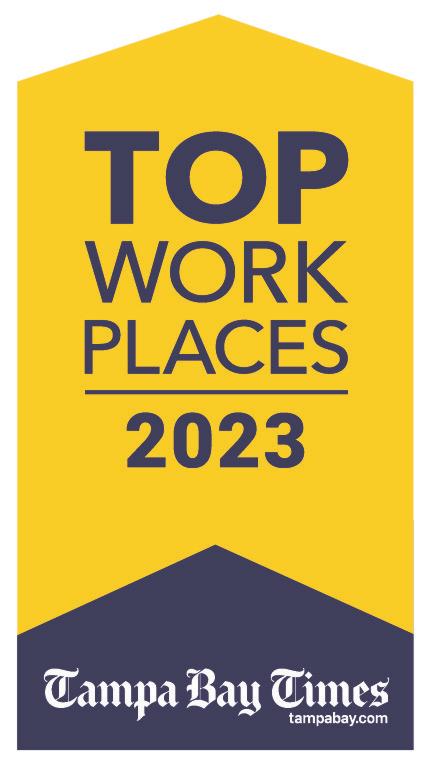

TAMPA BAY’S 100 TOP WORKPLACES







TAMPA BAY’S 100 TOP WORKPLACES



BY JAY CRIDLIN Times Staff Writer
You don’t get to be a top leader in your field if you don’t know how to inspire others. But as a leader, where do you find your own inspiration?
That’s the question we put to three CEOs of small, midsize and large Tampa Bay companies singled out for their leadership in this year’s Tampa Bay Times Top Workplaces survey. Employees praised Thomas Feidnt of Tampa’s Grow Financial Credit Union, Willy Nunn of Tampa home builders Homes by WestBay and Casa Fresca Homes and John Connolly of St. Petersburg electronic components distributor NAC Group for their approachability, their insight and their down-toearth outlook.
We caught up with Feindt, Nunn and Connolly to find out who inspired the tools and methods they use to earn employees’ respect and grow their companies.
Here’s what they said.
The QB of the company
Sports culture is everywhere in the offices of NAC Group, a 115-employee St. Petersburg firm that provides semiconductors and other components to the manufacturers of some of the world’s biggest products.
The conference rooms are named for Tampa Bay’s professional teams. There’s a basketball goal and fitness equipment in a warehouse break area. And John Connolly’s business card, which he hands to every new employee, ends with “TB-199.”
As in Tom Brady, the 199th pick in the 2000 NFL Draft.
“His whole career was about being the underdog,” Connolly said. “Our company is built with a street-fighter mentality, that everybody looked over or passed over us; (we’re) not the Harvard grad or whatnot. So we give out an award every year, the TB-199 award, to the guy that’s got a little bit of grit, or the girl that’s got a little bit of grit.”
Connolly, a former college baseball player, peppers conversations with all types of sports metaphors — MVPs, starting fives, winning championships — as a way of keeping his company focused on teamwork. NAC Group rewards

